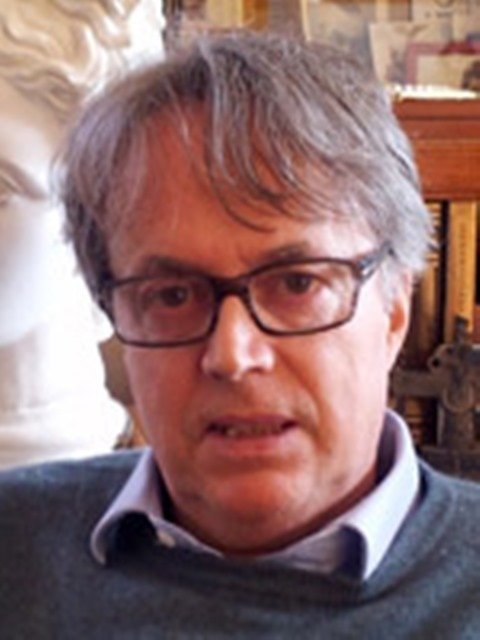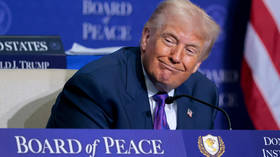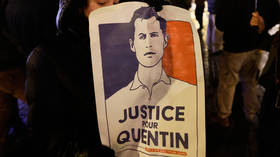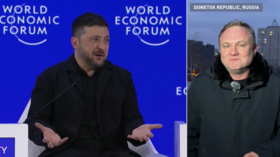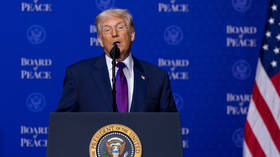Global totalitarianism: Change not forbidden, change is impossible
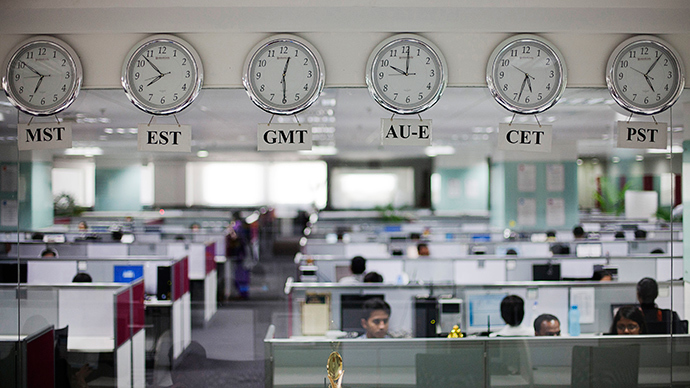
My apparently weird thesis is: the neoliberal system ruling directly or indirectly the greater part of the world is producing a disastrous anthropological mutation that is leading to a kind of planetary totalitarianism.
First let’s clarify the lexis. Neoliberalism is generally an economic philosophy established in the 20th century by figures like Friedrich Hayek and Milton Friedman. Typical of that thought is the belief that the only unifying feature of society is the individual, together with the faith that the free market can regulate society better by itself than any external regulation. Neoliberals are always in favor of any deregulation and privatization.
Historically the market’s auto-regulation is known as the classical liberal theory of the invisible hand. Usually it is attributed to Adam Smith, although the Scottish economist used it very rarely and apparently with a more restricted meaning. Anyway, the invisible hand is now forming an integral part of the neoliberal theory, which considers any public intervention in the economy to be the work of the devil.
The magic power of the invisible hand needs a society of pure individuals to work: everyone pursuing their best interest, the healthy egoism of society’s atoms. Alchemically, this composite of egoisms will result in maximized benefit for the entire society. It is a machine that never stops, a “perpetuum mobile” [perpetual motion] in which unlimited production goes with unlimited desire. There are literally no limits.
Beyond Smith, the dark father of neoliberalism is the uber-modern Bernard Mandeville. In his Fable of the Bees he praised greed and every vice in general as the true driving force of economy. It was not the case that Hayek openly appreciated him. The frankness of Mandeville is not typical of liberalism, which from the beginning is inclined to present itself as beyond moral; even before publishing ‘The Wealth of Nations’, Smith was coping with the study of moral sentiments. As René Dumont puts it, the economic action in Smith is “escaping morality without adversing [sic] it.”
Jean Claude Michea has explained quite convincingly that this suspicion against morality is contained in liberalism’s DNA: it is a reaction to the bloody European religious wars of the 16th and 17th centuries. The memories of those horrible conflicts, full of religious and political passions and hates, forged the habit of liberal neutrality.
This is a very interesting passage because neoliberalism still presents itself under the ideology of neutrality: the ideology of the end of ideology. Not a political system among others, historically and socially determined, but a natural immemorial fact. The auto-regulating market becomes ideologically a kind of universal category that was present in human history from the beginning. Many critics, following mainly the anthropological studies of Marcel Mauss, have stressed that the more ancient form of economy was rather pivoted on the obligation to give, to receive and to reciprocate.
If the core of neoliberalism is a natural fact, as suggested by the ideology already embedded deep within our collective psyche, who can change it? Can you live without breathing, or stop the succession of days and nights? This is why Western democracy chooses among the many masks behind which is essentially the same liberal party. Change is not forbidden, change is impossible. Some consider this feature to be an insidious form of invisible totalitarianism.
At this point I am waiting for someone to start up the old litany about the difference between liberalism (the good one) and neoliberalism (the bad one), between political liberalism and economic liberalism, and between liberalism and liberism. From an analytical point of view many of these differences are real: the liberalism of Benjamin Constant was very different from the economic theory of Milton Friedman, and many battles for freedom in 19th century liberalism were highly commendable. But historically it seems that neoliberalism is no more than what liberalism has currently become. Do you remember the 1960-70 Marxists who said that the Soviet Union was not real communism? It was a kind of degeneration, of course, but where was true communism? Triumphant neoliberalism is liberalism as it reveals itself in history just as Soviet communism (or the even worst Asiatic versions) was communism inside history.
In neoliberal society there is no one who really manages political power. The economy regulates itself and government is organized by technicians who apply some rational choices. This is obviously an ideological façade. To maintain this façade, making people believe that it is reality, is exactly the political problem of neoliberalism. The main instrument to reach this goal is propaganda. Modern propaganda’s masterminds quickly rediscovered an old idea well-known by every ancient mystic: images are more powerful than words. Guy Debord genially recognized this process in his hermetic 1967 “The Society of Spectacle”.
In his book Hidden Persuaders, Packard denounced colored billboards and subliminal messages. As Noam Chomsky puts it about corporations: "The goal is to maximize profit and market share. And they also have a goal for their target, namely the population. They have to be turned into completely mindless consumers of goods that they do not want. (…) The ideal is to have individuals who are totally disassociated from one another.”
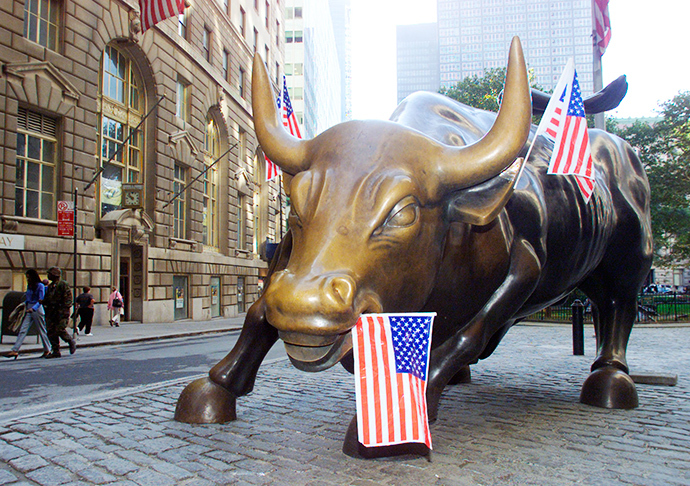
Free will in decline
And here comes the brain. The idea that, at the specific social
and political level, you need to implement the very structure of
the brain that is usually oriented to a practical and verbal
rationality (where, for example, the relation of cause and effect
is crucial for good evolutionary reasons) should still remain
valid. While in nature there is nothing like a free will, at the
limited social level you may conceive the concept of freedom.
This narrow space is the house of our precious rationality.
For a few decades, this attitude, written in our physiology, is
becoming rapidly outdated. The brain is one of our more flexible
organs that has been constantly adapting itself through history.
Now the big difference is that it is adapting to a cognitive
change made by men to control other men: the result of the
mutation could be a more submissive and controllable kind of
person not at all a fit individual in evolutionary terms. Think
of Pasolini’s “anthropological mutation” .
Our neoliberal society is building a breed to adapt to the new globalized totalitarianism. An author like Francis Fukuyama spread a somewhat similar alarm in his 2002 “Our Posthuman Future”, although quite less radically and, above all, not linking the structure of the dominant political system with those mutations.
To operate in our i-Society, we don’t need so much a rational attitude but a capacity to combine images by analogy. It is a world in which the old non-contradiction principle is useless because the images spring one from another with a non-logical dynamic. Bauman called it the liquid world. To live in the liquid world we are inclined to develop cerebral activities that may yield to a fast replay of a continuous succession of images and emotions. In this world a rational structure is pure archeology.
The law of our society is velocity and in the mind images are faster than thoughts. It may seems a little abstract but let’s think of our everyday life. Have you noticed that the current thriller movies are full of inconsistency, much more so than the older ones. This is because the coherence of the picture is no longer important; the climax of the plot may be an emotion or a sentiment that we gladly filter through some cerebral patterns in which rationality is not important. Rationality has never been the main trait of the human world; this is obvious, but it was always considered to be at the top of the social cognitive pyramid as the limited instrument of our political freedom. But the capacity to make rational connection was never less useful than in our society today.
I am certain that in the glass skyscrapers and penthouse where the famous one percent of obscenely rich people live, old Machiavelli never went out of fashion. To manage their wealth and their power they need the ancient categories of cause and effect and so on. Simplifying, the liquid world is the ideology that subjugates the other 99 percent in a kind of totalitarianism where everyone swears they are free.
The statements, views and opinions expressed in this column are solely those of the author and do not necessarily represent those of RT.
The statements, views and opinions expressed in this column are solely those of the author and do not necessarily represent those of RT.
